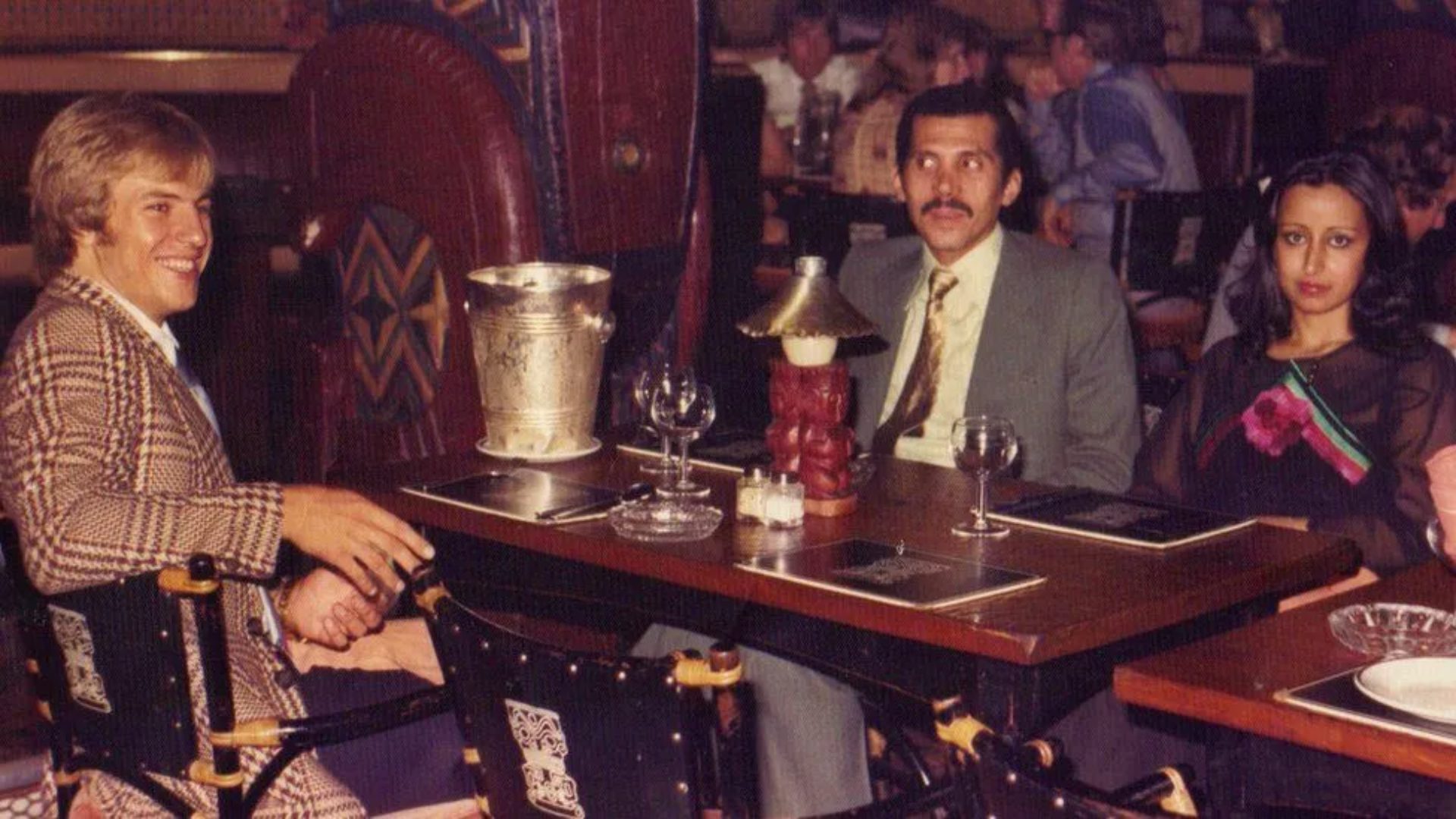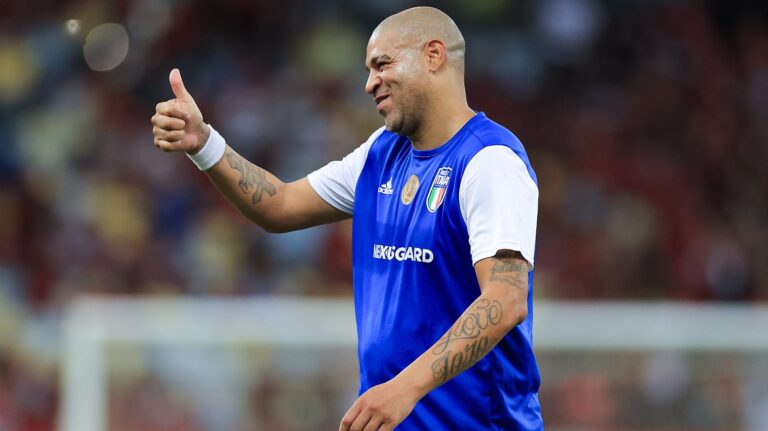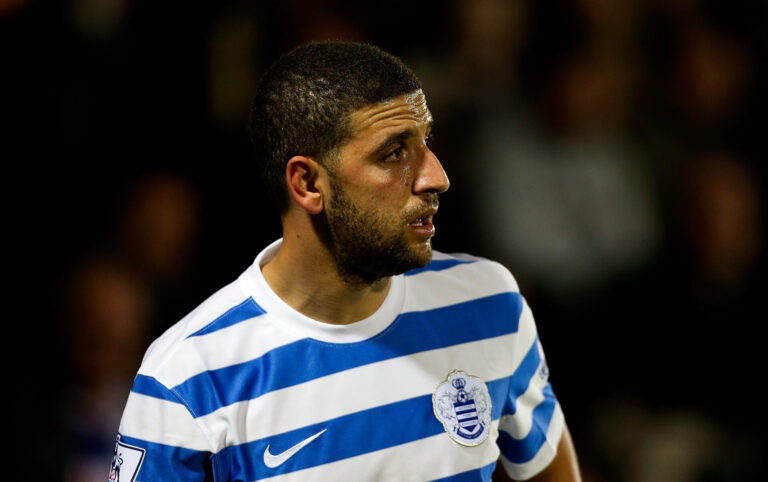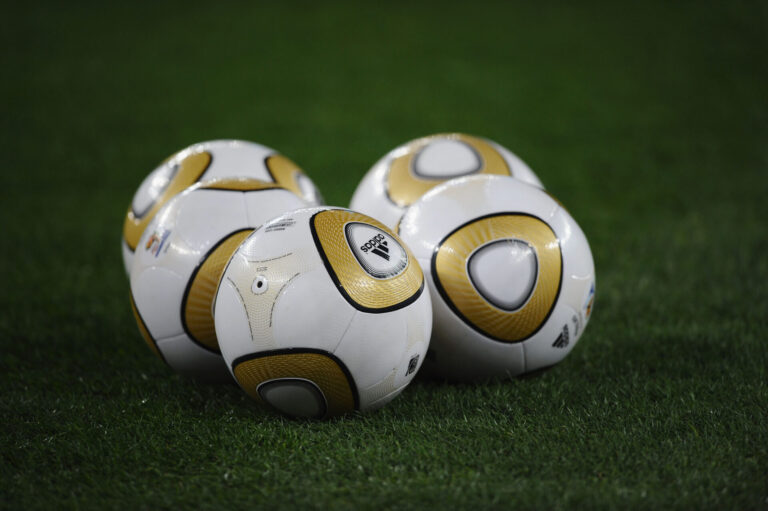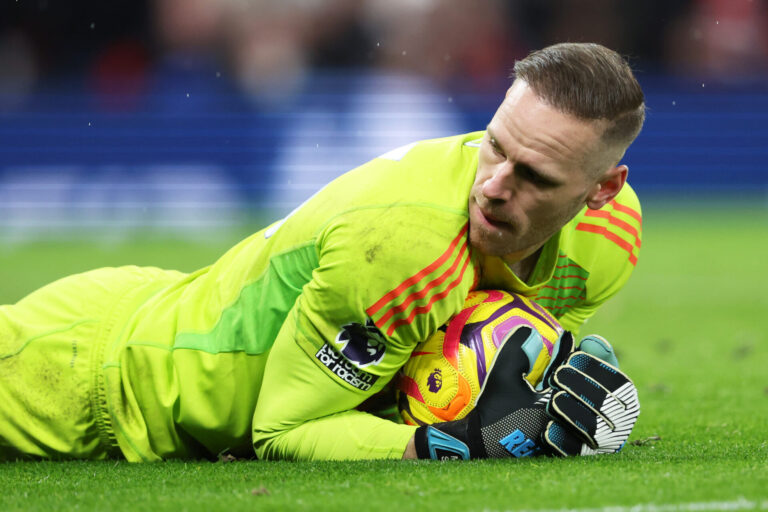The Story of the First European Footballer to Play In Saudi Arabia: Gifts, Trips, & Fleeing for His Life
Eamonn O’Keefe was the first European footballer to play in Saudi Arabia when he joined Al Hilal in 1976. Even back then, large amounts of money were floating around the game. “Write down what you want,” are the words from Prince Abdullah bin Nasser, the then president of Al Hilal, to O’Keefe upon his arrival.
The 22-year-old, at the time, was given a contract, which he describes as “mad money,” but it wasn’t just the salary that he was provided; “There was the apartment and the car and everything was thrown in,” said the former Republic of Ireland international as he reminisced on his time in the Middle East.
Then, an encounter between the player and the club president would force O’Keefe to flee the country in fear for his life.
“It was just one of those things for me that I didn’t have a lot of choice. Whatever the money is, it doesn’t matter. I had to get out of there.”
– Eamonn O’Keefe
But how did the player end up in Saudi Arabia in the ’70s in the first place? And what exactly happened?
Off to Arabia, We Go
Eamonn O’Keefe, in 1976, was plying his trade for Hyde United in the Cheshire County League when he received a call from a former manager. George Smith, who had brought O’Keefe into the youth squads at Stalybridge Celtic, had just gotten his coaching badges and was offered a role managing Al Hilal in the Saudi Professional League.
Smith, who clearly still remembered the qualities that O’Keefe had, decided to randomly call his former player and offer him a tax-free contract in Saudi Arabia. In doing so, he told him he would be the first European to play in the country.
“He went over there and I just got a call one night saying, how would you fancy being the first European ever to play in Saudi? And I went, well, I’ll have a listen.”
– Eamonn O’Keefe
The money and contract on offer were too good to turn down and the Manchester-born man made his way over to the Middle East to partake in a trial for Al-Hilal.
The Desert Heat
O’Keefe played with self-assurance. Even though he was confident in his football skills, he was dreading the heat and the possibility of having trouble breathing because of it. It was always going to be a challenge to go from Manchester’s typically chilly and damp climate to the Arabian desert’s scorching heat. Still, he managed to make a good impression.
“One of the biggest things for me was the heat because I wasn’t worried about playing because I was only 22.” He continued to go on and say, “When I went out there, I was supposed to go for a month, but I was only there for two weeks. We had training with the lads and I managed to knock a couple of goals in and stuff and I looked alright.”
He described the quality of football at the time as “reasonable” and said that a few of his Al-Hilal teammates were very athletic and quick. However, they only trained a couple days a week, unlike his time back in England.
The intense conditions in Riyadh had no bearing on how O’Keefe played. Perhaps it was the extra training he did compared to his Saudi teammates before he arrived, or that he was a standard above the level. But it was his performances on the trial that meant his original month-long visit was cut short.
Instead, the prince said to him, “Write down what you want; let me have it, and we’ll see.” He then told Eamonn to go back to England to sort out everything he needed to do and then come back.
The Prince & The Player
When O’Keefe was told to write down what he wanted, he didn’t hold back. He asked for a car. Got it. Asked for an apartment. Got it. Asked for a phone. Got it. Even when he was told to go back home to sort his things, all he had to do was ring the airport and ask for a flight home that same day. He got it.
It was a dream scenario for a 22-year-old. Who wouldn’t want to receive gifts for free from royalty? As time went on, the gifts got bigger. Prince Abdullah bin Nasser offered to take O’Keefe travelling with him, but the proposition came about in a strange manner.
The prince was in London and had brought an aide over with him. However, due to cultural differences—mainly Arabians commonly eating with their hands—he had sent the servant home due to his eating habits, which embarrassed him in a country where it was not commonplace to go without cutlery.
The servant was sent back home, and with the prince having extensive travel plans, this had just opened the door to someone else joining him. He invited O’Keefe out to dinner, and the Republic of Ireland international sat down with Prince Abdullah and the Saudi Arabian’s wife, where he was asked to accompany him on his travels.
On their travels, they were going to go to France, then onto Rome, before jetting into Tunisia and then eventually going back to Saudi Arabia. Eamonn called his wife and told her it was something he could not refuse.
They went from London to Paris before making their way down to Cannes, and that is where one confession would shift everything.
The Confession
“I’m a fan; I love you.” Not realising the extent of these words, O’Keefe simply thought, “You’re not a bad lad yourself,” but he instead asked, “You mean like a brother?”
The next words were not what Eamonn had expected: “No, not like a brother.” A Saudi Arabian prince, and not just any prince, but the grandson of the founder of Saudi Arabia, had just admitted to having romantic feelings for him. While shocked at this admission from a man with powerful connections in a country where such things were deemed illegal, O’Keefe knew he couldn’t cause a scene.
The revelation was announced in the most unexpected of locations. A lift in the south of France. There was no big lead-up. There were no signs that this would happen. It was just two men in a lift. Two men were on their way back from a night at a French casino, and one sentence was enough to change the trajectory of O’Keefe’s life and football career.
The lift turned cold, and time drastically slowed down in the moments after the confession. Eamonn made his feelings clear and told Abdullah he was not interested. The prince replied, saying they would go back to “president and player.”
Afterwards, he went back up to his room, stood on the balcony, and was in disbelief at what had just happened. He started to think about the prince’s children and the fact that he had a wife. He simply couldn’t comprehend that moment in the lift. But he still had to return to Saudi Arabia, and he wasn’t worried about anything. He believed Abdullah when he said they would go back to a professional relationship.
Fleeing For Safety
After arriving back in Saudi Arabia, O’Keefe was still yet to tell anyone what had occurred in France but he decided to let his manager know the story.
“I’ve got a great story for you; wait till you hear this,” he told George Smith, but the truth was, it was not a great story. His manager promptly stated, “You can’t stay here,” and “[The prince] won’t take no for an answer. He’ll just wait his time until he can threaten you with the children.” After hearing this, Eamonn O’Keefe knew the “mad money” contract of playing in Saudi Arabia was not worth his or his kids lives. He had to go back to England.
However, there was a major problem. The footballer was locked into a contract. And if he wanted to go back home, he had to get permission to do so. Permission from the prince who was in love with him.
Fearing for his family and himself, he couldn’t tell Prince Abdullah bin Nasser the reason he was heading back to the UK. Instead, he told him his father was unwell and he had to go see him. Jimmy Hill, a man who had a significant impact on the game as it is today—for example, by suggesting the idea to include goal difference—had just cancelled the Saudi Arabian season on top of that. His role in upheaving the football infrastructure in the country led him to call it off and it wouldn’t be starting up for another six months.
With this in mind, O’Keefe used the one thing he wanted to get rid of: his contract. As part of the terms, he was allowed flight tickets. So when he told the prince he needed to go back to see his father, he said there wasn’t a better time to use his contractual benefits than now.
However, the prince didn’t believe him at first, but Eamonn reassured him he would return. Eventually, he signed off on O’Keefe and his family going back to the UK, but with that, he had to sign a document to get his flights.
There was a little hesitation on the Irish international’s side as it was written in Arabic. He didn’t quite know what he was signing. He decided to call the prince’s bluff, telling him, “You want me to trust you to sign this in Arabic; I don’t know what it says, but you don’t trust me to come back to things. But I’ll sign it.”
But he wasn’t actually going to sign it. “So I picked up the pen and then just grabbed the paper and then [the prince] ripped it open and said, “Pass me the phone,” and he called the airport and the next thing I was on the flight back.”
The bluff had worked. He did not need to sign the document. He was on his way home. He only took a week’s clothes to keep up the lie that had allowed him to leave.
But knowing a secret about one of the most powerful men in Saudi Arabia was still a dangerous scenario to be in. There was an overwhelming sense of relief to have escaped the Middle Eastern country.
Home. But Not Safe. Yet.
After arriving back in England, Eamonn went straight back to his mum’s. There was an intense period of paranoia. He says that with any knock on the door or any phone call, there would be a moment of hesitation. Had the prince come to check on him? Had he sent someone to retrieve him? After all, he was still under contract at Al-Hilal.
With help from the Football Association, he was eventually able to get out of his contractual obligations. The FA told him to say to Prince Abdullah, and in no uncertain terms, “I have told my wife what happened and she is disgusted. I am not going over there anymore.”
Under this advice, that is precisely what he did. When Prince Abdullah rang up to check on him, he proceeded with the suggestion from the FA. As soon as he stated it, the phone went dead. That was the last Eamonn heard from the prince. But he was still locked into his contract at Al-Hilal.
Getting Out Of His Contract
Eamoon returned to England with the hope of restarting his football career. However, his registration under Al-Hilal meant this was impossible.
He spoke to the FA to try and get the issue resolved, but according to an article by the BBC, a fax from Riyadh arrived with a list of demands:
- 9,000 Saudi riyals for breaking the contract
- This is around £1200 back in 1976, which equates to roughly £8000 today
- 1,500 riyals for air conditioning repairs at O’Keefe’s apartment
- £300 as a loan repayment to Abdullah
- Losing one month’s salary still owed to Eamonn
He had no issues with the first and last points. However, speaking with the BBC, he states that the air conditioning was never broken, and he never took a loan from Abdullah. He felt this was revenge.
Eamonn called Jimmy Hill, who had sent him a letter regarding the charges. After a conversation that included Eamonn’s father saying they would tell the world what happened in France, a meeting between the player and a representative of Al-Hilal was scheduled.
While the meeting was a heated discussion, it eventually resolved the situation, and a week later, he was reprieved of his contract at the Saudi club. But after arriving back in the UK, it was a two month long process to get to this point.
A Sense Of Relief & Disappointment
The feeling of being released from Al-Hilal was relief. Eamonn was able to continue his football career. He went on to play international football for the Republic of Ireland, as well as signing for Everton between 1979 and 1982.
His football career was back on track. He was playing at the highest level. However, to this day, there are still some disappointments and things he wishes he could have done. For instance, O’Keefe wishes he was able to say goodbye to his Saudi teammates.
“But having said that, the guys [the players] are absolutely fantastic, you know, really good lads. And there’s only three or four of them who spoke English and I was slower, obviously, picking the Arabic up. The biggest regret is the lads and not being able to say, look, I can’t do this because they must have thought, well, he doesn’t like us.”
– Eamonn O’Keefe
If it wasn’t for his family, Eamonn believes he would never have left Al-Hilal and that he would have stuck it out, despite the dangers he could have faced.
“It’s just a different world. I think if I hadn’t had my children and my wife then, I think I might have sort of said, right, George, I’ll stay with you at your place, you know? But I just felt very vulnerable when I was on my own then in that apartment.”
– Eamonn O’Keefe
When it comes to the exodus of players making the move to the Middle East, Eamonn wishes he had the chance to chat with them.
He says, “When I see these ones going now, it makes me think, wouldn’t you think they’d call and say, you know, what’s the pitfalls and what to look out for?”
Eamonn O’Keefe’s trip to Saudi Arabia was not merely a story of football in a foreign nation; it was a story of bravery, perseverance, and the difficulties of negotiating relations with powerful figures in the sports industry. One can’t help but admire his commitment to putting his family’s safety first as he remembers his experience in the Middle East.
Despite everything that happened, O’Keefe never wavered from his principles, never compromising them no matter how bad things became. He didn’t care about the lifestyle on offer when it was clear his family was in danger.
Additionally, while his story may not mirror the likes of Neymar and Cristiano Ronaldo, who both made the switch to the Arab nation, it does showcase the dangers these players can face.
At the end of the day, O’Keefe states that if his story was a “load of rubbish,” Al-Hilal and Saudi Arabia would have challenged him on it. Instead, they tried to hide the story, and he believes it is because they knew it was true.
If you want to read more about Eamonn O’Keefe’s story, you can pick up his book titled “I Only Wanted To Play Football.”


